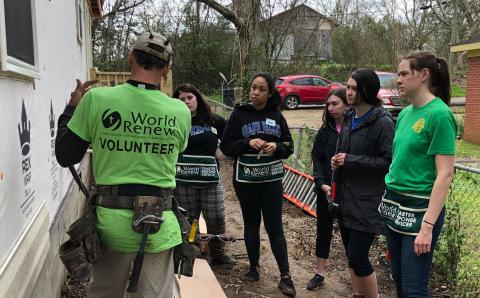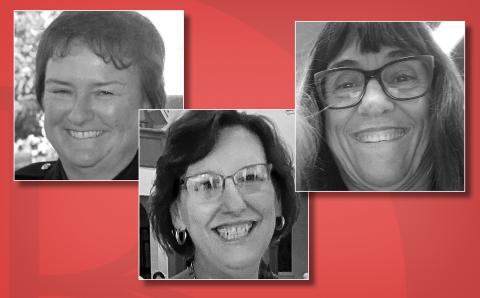The executive committee of the Christian Reformed Church’s Council of Delegates has approved hiring Tim Rietkerk as the next director of the CRC’s Chaplaincy and Care Ministry. Rietkerk, an endorsed chaplain with the CRC since 1995, will start in the role Jan. 19.
Chaplains are pastors who usually serve in specialized settings such as prisons, hospitals, counseling centers, and on military installations. The ministry of Chaplaincy and Care offers endorsement, training, and resources for chaplains.
Rietkerk comes to the position with 30 years experience as a chaplain, serving mostly in the U.S. Army and then in the Veteran Affairs Health Care System in San Diego, Calif., before transitioning to a hospice setting with Vitas Healthcare in San Diego, Calif. While serving with the army he deployed to Afghanistan, Iraq, and 12 other countries as a chaplain. He has a Master of Theology degree in Christian Ethics from Princeton Theological Seminary (2006) and a Master of Divinity degree from Calvin Theological Seminary (1994).
Rietkerk wants to take that training and experience and share it with other chaplains, whether they’re discerning their calling, actively serving, or remaining in ministry in retirement. “Especially in the army, there was a lot of leadership I had to do out of mentoring and coaching and teaching, and that’s what’s exciting about this job,” he told The Banner. “I would love to be that support person to chaplains and their families no matter what type of ministry they’re in.”
Rietkerk replaces Sarah Roelofs, who has served as director of Chaplaincy and Care since April 2017. Roelofs will move to a part-time position with Chaplaincy and Care, one that was approved to be created last January, bringing the total staff of the ministry to three (equivalent to 2.2 full time). Roelofs wrote about the expected change on The Network in October.
“I am really excited for how the ministry looks going forward,” Roelofs told The Banner, noting that with the previous staff of one director and one part-time communication person “there were just too many directions to go.”
Roelofs said she is grateful for what Chaplaincy and Care has accomplished during the time she’s served as director, including seeing chaplains become “more deeply connected,” weekly prayer sessions together, and new resources developed for a more diverse group of chaplains serving in increasingly varied settings.
Roelofs said the decision to step to the side in the ministry, but still use her gifts for the work of chaplaincy, came out of a “yearning to be involved more in my local community.”
“With COVID and with the injustice of racial inequality, the political divide,” she said it felt more necessary to have more to give to those around her.
“To reach and to build bridges with people that maybe I don’t see eye to eye with. … I have to be in community with (them) … to be in people’s lives,” Roelofs said.
Rietkerk sees building relationships as the biggest part of what he will do as director, serving from his home in California. “The Chaplaincy ministry is one that is really scattered all over the place—the U.S., Canada, and even some of our military that are stationed over in Europe,” Rietkerk said. “I really enjoy reaching out and forming relationships, so I hope to be a very relational person that way.”
The director of Chaplaincy and Care is one of several ministry leadership positions turning over in the next year for the CRCNA. Rietkerk anticipates contributing his past experience to the weathering of that change. “It’s kind of an exciting and scary thing at the same time. … I’ve worked, especially in the military, at always being used to change and adapting and figuring things out, so I hope to bring that kind of contribution to the organization as a whole, too.”
About the Author
Alissa Vernon is the news editor for The Banner.






